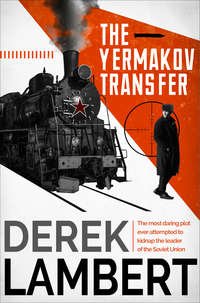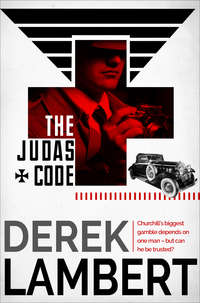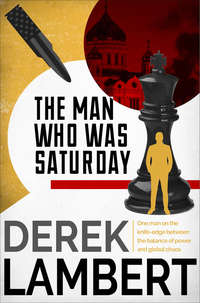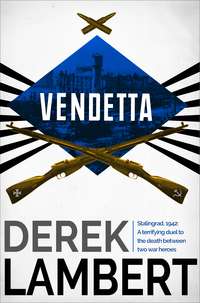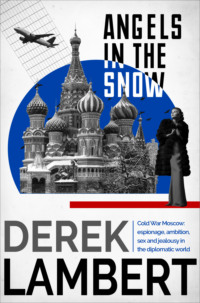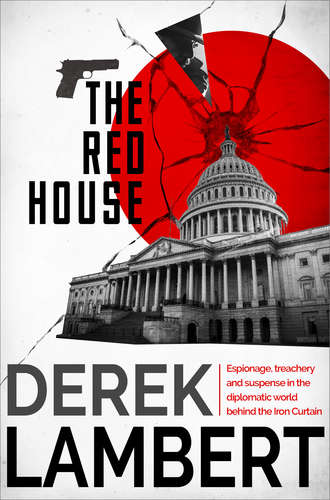
Полная версия
The Red House
Although I am a good citizen, Vladimir Zhukov assured himself. A good Party member. I believe in our crusade. His trained brain recited, unsolicited: ‘From each according to his ability, to each according to his need.’ The last lecture in Moscow surfaced. ‘We know that an accelerating, unmanageable national debt will effect civil collapse and open the floodgates of Socialism.’ The lecturer’s fanatic face peered closer. ‘This is now happening in the United States of America. It is up to you …’
They had observed him over the past five years and he had passed their surveillance. Not for them to penetrate the secret sensibilities that are a man’s soul. The coil of poetry unsprung. Not for them to glimpse the doubts on which true strength is founded.
He lapsed into an excited doze, limbs twitching, eyelids quivering. Yellow cabs vanishing down narrowing vistas of skyscrapers, Manhattan a mirage behind a veil of snow. When he awoke he was confused about reality: he had dreamed so often about this arrival in a celluloid city projected on his private grey screen.
He climbed out of bed carefully, still in his underwear. It was exactly two hours: such damned precision. His wife slept serenely. Through a slit in the curtain he looked down on the synagogue, on the blue cap of a guardian cop.
In the bathroom down the corridor he shaved, drawing blood from his tired skin. He pressed his eyelids and his eyes ached back at him. He massaged a little pomade into his sleek hair and watched the wires of silver fade. He returned to the bedroom.
Valentina said, ‘Where are you going, Vladimir?’
‘I thought I’d take a stroll. I can’t sleep.’
‘You mean you’ve stopped yourself from sleeping.’ She knew him so well.
‘I may never see New York again.’
‘They don’t want you to go out alone, Vladimir. You know that. Why defy them on our first morning in America?’
‘I’m not their slave, Valentina.’
‘Don’t be foolish—remember how you’ve worked for this day.’ She sat up in bed, hair loose, the brown aureoles of her nipples visible through white cotton; in her waking moments she was more feminine than she cared to be.
‘A servant, maybe. But, I repeat, not a slave. I must assert some authority now before it’s too late.’
‘Come and lie down with me.’ She stretched out warm arms.
Vladimir Zhukov silently apologized to his wife for rejecting her comforts and put on his new dark-grey suit with the wide trouser bottoms which Western fashion was beginning to acknowledge. Except that with his trousers the width extended to the thigh.
Valentina said, ‘If you insist, then I shall come with you.’
But he wanted to see it by himself. Gary Cooper walking lone and tall down Fifth Avenue. Compromise—the dress-sword of the diplomat. ‘I’ll meet you later and we’ll have lunch together.’
‘Meet me? Where? We don’t know anywhere in New York.’
He reacted swiftly. ‘At the top of the Empire State Building.’ He laughed aloud for the first time since the aircraft touched down at Kennedy Airport.
He felt as if he had been released from prison and was vaguely ashamed of his exhilaration. But a lot of conformity lies ahead, comrade.
It was midday. The snow had stopped and the sky above the rooftops of Lexington Avenue was polished blue. A few jewels still sparkled on the edge of the sidewalk but in the gutters the slush was ankle-deep. They had a lot to learn about street cleaning, he decided proudly.
The Gallery Drug Store, Marboro Books. Sixty, 59, 58 … 53, 52. He enjoyed the drugstores. ‘Meet you in the drugstore, buddy.’ Sulky-faced girls with bobbed hair wise-cracking with chunky athletes with greased or chopped hair (Hollywood 1935–50). But it needed courage to enter one. They would call him mister and ask where he came from.
Bookshops, delicatessens, restaurants … the luxury seemed cosy and refined in this particular avenue. East Side, West Side. Which was which? Grand Central Station, Central Park, Times Square, Fifth Avenue, the Waldorf Astoria, Harlem, Greenwich Village—that was all he knew.
He found courage and bought two newspapers from the front stall of a drugstore. The New York Times and the Daily News.
‘Thank you,’ he said.
‘You’re welcome,’ the girl sighed, yawning and chewing and talking simultaneously.
He tucked the papers under his arm like a baton wondering if he could be mistaken for an American. He looked behind to see if he was being followed. It didn’t look it but you could never tell.
What strikes me most? he asked himself, seeking first impressions for the album. It had to be the shops with their abundance of consumer goods: this he had been warned about—the products of exploitation, late participation in wars, geographical advantages, twenty million Soviets killed conquering the Hun. But the briefings hadn’t fully prepared him for the profusion, the multiplicity, the permutations of plenty. (How many variations of salad dressing could there be? How many odours of deodorant? and who wanted to smell of lemons or Tahitian lime anyway?) In Moscow he had queued for a ballpoint pen with a sputnik that slid up and down the stem.
And again, the cars—the automobiles. New Yorkers paraded in their cars. Vladimir Zhukov, crunching down Lexington Avenue with the enemy all about, lusted guiltily for a big tin fish with automatic drive and power-assisted windows. He was startled by the number of female drivers—girls with long, straight hair, smartly coiffured old ladies steering their vehicles like tank commanders. What happens to the babushkas? Do they have them put to sleep? or let them drive their tanks over the cliffs like lemmings?
He reached 42nd and turned right past Grand Central, remembering faintly from another life the stations of Moscow—cathedrals, fortresses, terminals of turreted grandeur where immigrant peasants wandered like bewildered insects.
He looked at the street numbers and knew with his mathematical certainty that he could never be really lost; just the same at that moment he was, gloriously and excitingly. Like a child trying to get lost and fearing the chilly second-thoughts of dusk.
Courage, comrade. He said to the cop frowning at the unplumbed depths of slush on a street corner, ‘Excuse me, please, can you tell me the way to the Empire State Building.’ His words froze and hung between the two of them.
The patrolman who had long sideburns and a squashed face said, ‘How’s that?’
Zhukov expelled the rush of words again, hating the sense of inferiority that accompanied them. Put this cop in Red Square and see how he managed.
‘Where you from, fella?’
‘Moscow.’
Enlightenment shifted the crumpled features around and Zhukov realized that it was a friendly face.
‘No kidding. One of those emigré guys, huh? And you don’t know where the Empire State is? How’s about that.’
Zhukov waited.
The patrolman said, ‘Two blocks down. Turn left down Fifth. You sure as hell can’t miss it. I guess that’s the one building you can’t miss.’
‘Thank you.’ Zhukov crossed the slush, wishing he didn’t look so conspicuous. Even though no one seemed to pay him much heed.
‘Okay, pal,’ said the patrolman. ‘Any time. Any time at all. Have a good day.’
The City Library. (Four million volumes.) Negroes, Italians, Poles, Swedes, Germans, Puerto Ricans (he presumed), hippies, producers in camel-hair coats, soldiers to be sacrificed in Vietnam, women in furs and boots as arrogant and vapid (he was sure) as fashion models, businessmen with slim black attaché cases—one there munching a hot-dog. All intent on something on this white melting day.
One thing he did not do: he did not walk along staring up at the narrow sky because that was the hallmark of the green horn. Which I am not, he thought. I am a representative of the greatest power on earth. It’s just that I’m a stranger. At which point he discovered that his head was tilting upwards like a peasant seeing his first aeroplane.
So there it was—a colossus of playbricks beneath him. Massive and vulnerable. You could crunch them, swipe them aside with one bear paw.
On the 102nd floor observatory, nicely placed at 1,050 feet, Vladimir Zhukov surveyed the enemy camp with awe and got annoyed about the awe.
He gazed south-west where the vanguard of the buildings gathered for approaching tourists. With the Statue of Liberty on sentry duty. He moved and sighted north towards what he thought was the Bronx, beyond a phalanx of skyscrapers. Difficult to believe that in one section of one storey of one of those obelisks, a business, an existence, a saga, could exist without awareness above or below.
To the north-east the metallic, ostentatious thrust of the Chrysler Building with, he surmised, the pygmy-giant of the United Nations close by; but within that cubist pygmy lay the power to curb so much capitalist expansionism.
The city, so beautifully exhibitionist, within the ice-blue perimeters of its rivers.
‘Sometimes snow and rain can be seen falling up.’
‘I know,’ Vladimir Zhukov said. ‘And the rain is sometimes red.’
He turned without surprise and faced Mikhail Brodsky.
The breakfast was called The Heavyweight. It consisted of a wafer of bacon, two rheumy fried eggs and three pancakes covered with maple syrup and crowned with a dollop of whipped cream. For your $1.25 you also got a small glass of orange juice, toast and coffee. It was, Zhukov thought, good value and totally disgusting He ate it with relish.
Brodsky ordered coffee, tapping the last grains of sugar from the paper sachet with his forefinger, leaking the last drop of cream from the tiny carton, his actions the legacy of a needy youth. Although the delicate bloom on his cheeks seemed to have surmounted bread and potatoes and blinis.
Brodsky tuned in with two bars and said, ‘I think this is more our style.’
More than what?
Brodsky cat-sipped at his coffee. ‘I feel at home in these places. With these people.’ He indicated the coffee shop’s occupants: a gaunt, white-haired man in a Stetson flirting grotesquely with the woman behind the counter; a starved little guy in a red checked lumber jacket continuing his life’s search for winners with a chewed fingernail; a bearded Negro in a cowboy jacket riding his chair like a horse; mother and son spooning banana splits, a salesman inside an overcoat collapsed by rain and snow.
The statement seemed to Zhukov to be an admission of inferiority. But he let it pass. ‘How did you find me up there?’ Either the room had been bugged or Valentina had told him or he’d been followed. Any one explanation wearied him.
‘It was not so remarkable. Your wife was still feeling tired and suggested that I meet you instead.’ He wiped his glasses, looking myopic and vulnerable. ‘And it’s good that we become friends because we shall be seeing a lot of each other in Washington. I think we should have a chat now before we leave. You see,’ he explained, ‘the weather has cleared and we shall be taking the shuttle this afternoon.’
‘So soon?’
‘Washington is your destination.’ He glanced around the café with a furtiveness as natural as sleeping and breathing.
‘So we are going to have a frank and open talk, are we?’
‘I hope so, comrade. I really hope so.’ The girlish hair fell about.
He pressed his loaded sinus with finger and thumb; nails pared and clean, hands hairless. His lashes brushed the lenses of his spectacles. He wore the same dark overcoat, the same woolly scarf that mothers made you wear, a thin grey tie.
‘Then tell me what happened at the Embassy this morning.’
‘It was all most unfortunate.’
‘I could see that. It is never fortunate for a man when he is kicked in the crotch and rabbit-punched. But why, Brodsky? Why?’
‘He was a very foolish boy.’
‘What happened?’
‘You need not concern yourself. It was a small irritating incident and you have the great task of adapting yourself to life in this self-indulgent society in which we find ourselves. It was the foolishness of youth. A girl, too much whisky—watch the whisky, comrade. He will wake up in Moscow and be dealt with there. A small punishment, probably, plus the knowledge that he has ruined his career.’
‘I think he tried to defect.’
Brodsky sighed, holding up one delicate hand as the woman came to clear the table.
‘More coffee?’ she asked.
‘Please,’ they said.
‘Coming up.’
She was blonde and Germanic and smiling, but she moved like an automaton, like the girl who sold him the newspapers. A symptom of being a menial in an affluent society, Zhukov supposed. She brought more coffee and they thanked her and she said, ‘You’re welcome.’
‘Did he try to defect?’ Zhukov asked.
‘That is a very dramatic and contemporary word. He simply decided that he would like to stay with this American girl.’ Brodsky reached for his inhaler. ‘I suppose you might as well know the full story.’ (Which meant he would be lucky to hear a half-truth.) ‘He arranged to meet an American in a café in Queens. She was going to help him disappear for a while. But we were waiting for the unfortunate Boris Ivanov in the café.’
‘You mean you made some sort of deal with the Americans?’
Brodsky shrugged delicately. ‘It really isn’t my business. I can only tell you what I have heard. He was only a boy after all. I suppose he had nothing much to offer the Americans …’ He put away the plastic white bullet. ‘Not like you, comrade. If you were ever in a position to take such foolish action.’
The song had left his lips. Replaced by the voice of secret authority that served Czars and other dictators and the Party with unswerving treachery; the voice of those who chose murder and intrigue as others choose dairy farming or quantity surveying.
And here was the voice in a coffee shop on 42nd Street, New York City. Zhukov’s reactions chilled: Grigorenko was the underline, Mikhail Brodsky the boss. Perhaps the boss, with an Ambassador, a Minister Counsellor, counsellors, secretaries, attachés under him.
‘If you think I am the sort of person who would take such an action then I should never have been sent here,’ Zhukov said.
‘I didn’t make the choice.’ Brodsky lit a mentholated American cigarette. ‘But it was very foolish of you to go wandering around in New York on your first day here.’
‘Apparently I was not alone.’
‘You could have been mugged.’
‘Mugged?’
‘Robbed, beaten up. I don’t know how the word came to be. Perhaps because only mugs allow themselves to be robbed.’
‘In broad daylight?’
‘Certainly in broad daylight. This is a dangerous and decadent society, comrade. A man will knife you in a cinema queue for the money to buy drugs.’ He leaned forward, blinking behind his gold-rimmed spectacles. ‘Like myself you are a sensitive man. You write poetry, I believe?’
‘How did you know that? It’s never been published.’
Brodsky slipped the question. ‘I too write poetry. Some of it has been published in Novy Mir. And once I wrote an amusing little poem about Russian women wearing shorts. Calling them shortiki—an American-derived term—instead of trusiki. It was quite well received.’
‘I’m happy for you,’ Zhukov said.
‘I’m trying to illustrate that people like ourselves should be both sensitive and realistic. It’s not wise to let sensitivity get the upper hand in this country. Values can become unbalanced in a sensitive mind. You can be dazzled by the abundance of food and drink and clothes and apparent freedom and forget the misery and oppression and violence.’
‘Thanks for the warning,’ Zhukov said. ‘I had many like it before I left Moscow.’
‘Nevertheless these first impressions can be quite traumatic.’ He sang a couple of bars and relaxed. ‘Now it seems to me that we should go.’
The woman behind the bar called out, ‘Goodbye, folks. Have a good day.’ And confided to her senile suitor in the Stetson, “English tourists—I can always tell ’em.’
But Mikhail Brodsky was not quite finished. ‘The safest place to talk,’ he confided, ‘is in a crowded street.’
They cut down Madison Avenue, turning right down 53rd. Zhukov looked with pleasure at the legs of the mini-skirted girls and surmised that they must have very cold arses.
Brodsky walked very carefully, despite his rubber overshoes, leaping like a ballet dancer over the street-corner swamps.
After a while Zhukov asked him what was on his mind.
‘I believe certain approaches were made to you in Moscow.’
‘Such as?’
‘About your responsibilities in Washington. Above and beyond the call of duty.’
‘They told me to keep my eyes and ears open for any information that might be useful to the Soviet Union.’
‘A delightfully euphemistic way of putting it.’ Brodsky leaped a small lake on the corner of Lexington. ‘Mr Hoover has estimated that eighty per cent of all personnel at the Soviet Embassy in Washington are spies.’ His gold glasses slipped and he pushed them back with his woolly-mittened hand. ‘Who would have thought that the great Mr Hoover would have indulged in such understatement?’
While he was waiting for Valentina to powder her nose Zhukov flipped through the Manhattan phone book. One number printed prominently at the beginning startled him. U.S. Secret Service 264–7204. It didn’t seem to Vladimir Zhukov to be very secret.
3
THE Red House in Washington is a greyish building on 16th Street a few blocks—two-fifths of a mile maybe—from the White House. It is fairly ornate having been built for a good capitalist, Mrs George M. Pullman, whose husband designed and built Pullman cars for America’s railroads; and one of its first tenants was the Embassy of Czarist Russia. But the building, four storeys high including the ground floor, is a poor place compared with the great mansions of other countries ranged along Embassy Row, Massachusetts Avenue, where many expansive architectural styles vie with each other. (Here Britain seems to score with a statue of Sir Winston Churchill, who looks as if he might be hailing a bus, outside their elegant manor.) The Russians are perpetually aggrieved at the faded modesty of their home, but the Americans decline to do anything about it until they are given a better Embassy in Moscow. Likewise the Russians refuse the Americans more resplendent accommodation until they are given more prestigious premises in Washington; this childish intractability is often said to be symbolic of the two powers’ attitudes towards settling larger issues such as wars.
A small driveway leads up to the door, only twenty feet from the sidewalk. The windows have balconies; there is an undistinguished tree, pleading to be struck by lightning, in the small front garden, wire netting around the hedge, some interesting aerials on the roof arranged in the sort of art forms that normally outrage the Kremlin. Outside a West German Volkswagen or two, with diplomatic plates, which seems to indicate that ideological differences need not stand in the way of commercial economy.
Among the Embassy’s neighbours are the National Geographic Magazine and the University Club. The Washington Post lies around the corner.
A little way down 16th from the Embassy C.I.A. agent Joseph Costello sat at the wheel of his Thunderbird chewing on a dead cigar butt and privately expressing his opinion on what Mother Russia could do to herself. Snow mixed with freezing rain bounded along the street encasing the car in ice. And what’s more he wouldn’t put it past the stupid bastard to walk: he wouldn’t put it past a Russian to break the ice on the Potomac and go for a swim.
But I know my limitations, Joe Costello, Vietnam veteran and hero, acknowledged. Not for me the cocktail parties with The Beautiful People. I am strictly for surveillance and I am eternally grateful for the opportunities afforded me by my heroism (refusing to act stupid in front of my buddies) under enemy fire. Costello, hairy, squat and honest, further confided to himself: I wish to hell I’d made the grade as a professional football player for the Redskins. Still, I’m lucky to have a job like this, a cut above the F.B.I., two cuts above the precinct.
But surveillance on a shitty night like this! And for what? All he knew was that he had to follow the Russian and make sure that the meet with the State Department clerk took place as scheduled and that the Soviets didn’t try and hi-jack the clerk or anything. As far as he, Joe Costello was concerned, he would be very happy if they put a bullet in the State Department guy’s guts if he was a traitor. But who was he to express an opinion? Just surveillance.
Tardovsky, tall and thin and unmistakable, emerged from the embassy. Please get in your nice comfy little Volks, old buddy. But the Russian bent his thin neck into the rain and snow and walked quickly down 16th.
You sonofabitch! Costello got out of the car quietly and spat the cigar butt on to the sidewalk.
The meet was supposed to be in a bar on 14th, where pornography and bare flesh prospered alongside the palatial seats of national and world power. Very dark, probably, with a dirty movie grunting along in the background.
Tardovsky was heading in the right direction. But hadn’t anyone told him that Washington was the worst city in the States for getting mugged? And what the hell did he do if the Russian was jumped? On 14th anything could happen. On this sad street the orifice-filled bookshops and the girlie clip-joints were doing fair trade. A few bums, junkies and sharply-dressed blacks hung around the doorways. Jesus, Costello thought, right on the President’s doorstep.
Then he became aware that he was maybe not the only tail on Tardovsky. Behind the two of them he sensed another shadow. They were about to play games. But who the hell was the playmate?
Tardovsky entered the bar just off 14th and sat down at a table. On the screen a long way down the tunnel of the bar a couple stripped and simulated copulation; the girl showed her genitals with abandonment, her lover was more coy—maybe he was ashamed of them, Costello thought.
Tardovsky ordered a beer and took his hat off. Right, Costello thought—you should take off your hat in the presence of a lady. He sat way behind Tardovsky and glanced at his watch: five minutes till the meet. He ordered a Scotch from the girl in the crotch-high black skirt.
The second shadow sat down to the left of Costello, three tables away. Costello took a look at him. Very wet, like himself, very cold. Powerful looking, impossible to distinguish his features behind the turned-up collar of his bulky topcoat.
Why hadn’t they told him more? ‘Just keep your eye on them to make sure nothing goes wrong. Keep in touch.’ But they hadn’t mentioned a third party who could be Russian, American, British, Czech (they were pretty high in the espionage stakes these days). Three minutes to go.
Tardovsky, who looked bored with the repetitive sex looked at his watch and went to the toilet. The man in the bulky topcoat followed. Which means I have to follow too, Costello decided.
But the toilet wasn’t designed for espionage or the prevention thereof. With two big men bulging in the confined space behind him, Tardovsky didn’t bother to finish what he was doing at the stall. He zipped up, ducked between them with giraffe agility and was gone.
‘Shit,’ said Costello. He turned to follow.
‘Not so fast,’ said the other man, his face blond and fierce behind the collar.
‘Who the hell are you?’
‘Who the hell are you, buddy?’
‘It doesn’t matter now.’ Costello heaved towards the door.
‘Oh yes it does. Sure it does.’ The stranger chopped at Costello’s neck but hit his elbow on the wall. Costello got him in the stomach with two karate fingers; although the topcoat blunted the impact.
They fought savagely for a couple of minutes. But the toilet wasn’t designed for pugilism either. So they identified themselves and, while the faucet over the stall urinated noisily, silently contemplated their plight.


